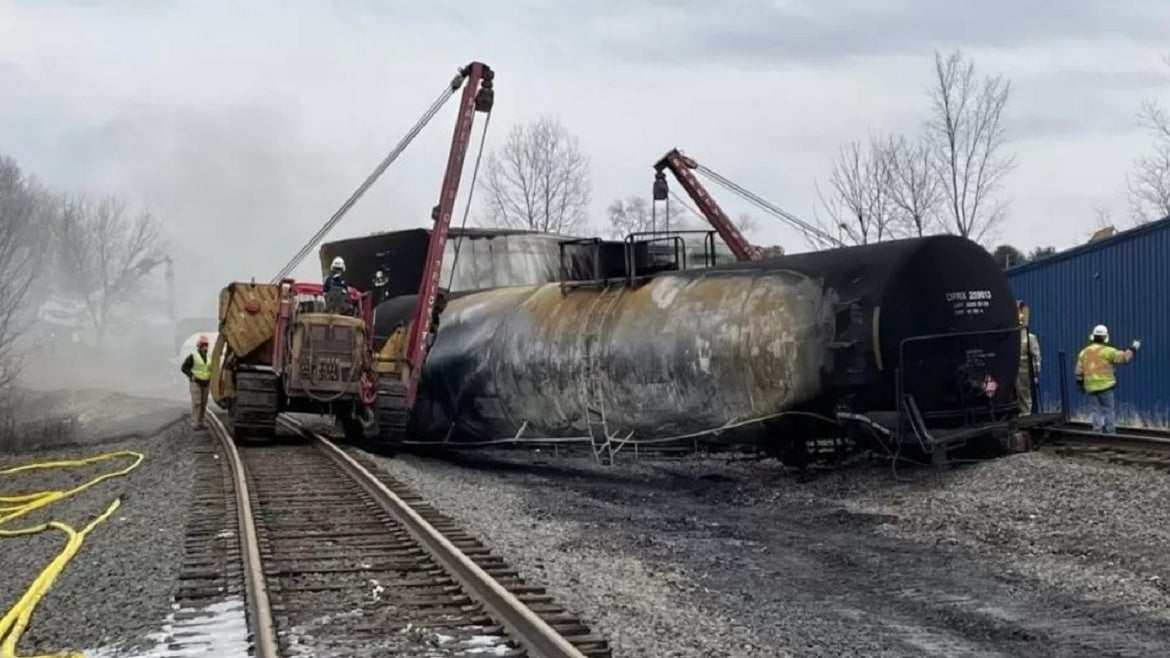Federal authorities are going door to door in East Palestine to check on residents after massive toxic train derailment.
The U.S. Environmental Protection Agency is cracking down on the removal of toxic chemicals and water from East Palestine, Ohio, where federal authorities are going door to door to check on frightened residents after a massive chemical train derailment earlier this month.
The EPA briefly halted shipments of hazardous materials from the town after learning train operator Norfolk Southern had transported tainted water and soil to facilities in Texas and Michigan, where state officials said they hadn't been notified that dangerous waste would be shipped to their jurisdictions, authorities said.
The federal agency announced it would now supervise the removal, and redirected shipments to two EPA-certified sites in Ohio: Heritage Thermal Services in East Liverpool and Vickery Environmental in Vickery.
"All of this is great news for the people of East Palestine and the surrounding community, because it means clean-up can continue at a rapid pace," Shore told reporters Sunday.
The town of East Palestine has been shrouded in fear after a Feb. 3 train derailment ignited massive explosions and released dangerous chemicals into the air, water and soil. Vinyl chloride, a poisonous chemical known to cause several cancers, was drained and set on fire by the train's operator, who said the blaze was necessary to avoid an explosion of bomb-like proportions.
The village's 5,000 residents were twice ordered to evacuate by local officials.
Since then, many have left, vowing to never return, as residents reported dead animals and pets, sickened livestock and myriad health ailments to people including vomiting, coughing, skin rashes, dizziness and piercing headaches.
Shore said Sunday that air quality tests have so far come back at normal levels.
But on Thursday, National Transportation Safety Board Chair Jennifer Homendy called the derailment "100% preventable" and said it was "no accident." The NTSB is one of several agencies investigating the chemical disaster.
Preliminary findings by the NTSB determined one of cars carrying plastic pellets was ignited by an overheated axle and those sparks caused the initial fire, Homendy said. The axle, and why it overheated, are being investigated by NTSB examiners, she said.
Municipal water tests are ongoing and residents who rely on wells should drink bottled water, authorities said.
Yet residents continue to report health problems and accuse environmental and law enforcement agencies of doing too little, too late.
Environmental activist Erin Brockovich joined disturbed residents Friday at a town hall meeting and demanded government officials provide more answers about why people continue to fall ill.
"They're worried, because they've got coughs and respiratory problems," Brockovich told CBS News. "There're so many unanswered questions, and they know this isn't the last of this conversation."
Related Stories






